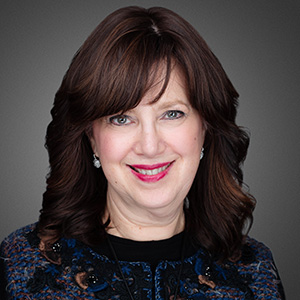To Owe Is to Grow


Realizing we’re indebted cuts us down to size; and then we can grow
Everyone today knows: Cultivate an attitude of gratitude and you’ll be a happier individual. So go ahead and take the dare. Keep a list, add to it each day, and see how much you have. It shifts our attention off of what’s missing and allows what we already have to come into focus and fill us up.
Rav Dessler explains that happiness comes from a feeling of fullness. Kosi revayah, as my cup runneth over with what I have, it overflows onto others. We have a simchah, and we want others to join us celebrating it. It’s contagious.
And to follow that reasoning still further; if what the Creator of the World has given me until this point hasn’t made me happy as of yet, then why should He continue to give me more? All I’ve shown Him is that no matter what He’s given me so far, I still haven’t been filled. My cup has a hole and whatever gets poured in leaks out.
In Debt
In the story of our lives, the twists and turns are unpredictable. While I try to be grateful for everything, even the challenges, I personally never imagined how much my family and I would need to reach out to others when my mother was diagnosed with a devastating illness.
When you’ve merited being on the giving side, it’s a shift of perspective to be on the receiving end. So many people have helped us. Bikur Cholim, Chesed 24/7, friends who take turns sitting with my mother, friends and relatives from all over who call and care and shop and cook.
And the tefillos. Each kapitel Tehillim is a diamond set in a beautiful silk-lined box and tied up with shiny ribbon, delivered before the Heavenly throne on behalf of my mother. My mother was moved to tears: I can’t believe so-and-so would daven for me? That old neighbor remembers me?! How appreciative she was.
All of a sudden, I owe. Big time. How do you repay a friend who gives up two days of Yom Tov to be in a hospital far from home? Why am I squirming as I think about it?
I don’t like the feeling of owing. Once, many years ago, a friend took a loan on our behalf to help us out of a difficult financial situation. I didn’t sleep a peaceful night until the debt was repaid.
Because no matter how much we say that we owe it all to Hashem, I suspect that secretly we (I?) harbor a certain fantasy of independence, of being able to make it on our own.
To owe is to shatter that fantasy. To owe is to be obligated. To be obligated is to be burdened, to be burdened is to lack freedom.
There’s more. I’m worried I will not live up to the challenge of remembering what I owe, the ongoing obligation I have to this individual and to everyone who has helped me. Our memories tend to be short. Go to a wedding. Who gets the kibbud? The chassan’s rebbi from his last yeshivah. Beautiful. But what about the rebbi who made him extra sheets so he could keep up with the kriah when he was lagging behind the class in second grade?
There is no statute of limitations on hakaras hatov. Shaul Hamelech warns the Kenim, descendants of Yisro, to separate from the Amalekim before he wages war on them so they should not be harmed (Shmuel I 15:6). He tells them it’s because they did chesed for all the Jewish people.
Radak explains that Yisro did chesed with Moshe, and that was considered as if Yisro had done chesed with the whole nation. All that hakaras hatov 400 years later!
I’ve seen examples of exemplary hakaros hatov from people I’ve been privileged to know.
There was a girl I mentored 17 years ago. She now has a beautiful family of her own. Her father calls me every year on Purim and before Rosh Hashanah to give me brachos. I know people who deliver mishloach manos every Purim to the shadchan who made their oldest daughter’s shidduch, though they’ve since married off the rest of their children, and that daughter has already married off two of her own daughters.
What’s the underlying lesson here?
Our Lifeline
I grew up in the heady early years of the space program. Images of an astronaut taking a walk in space are engraved in my mind. That image has come to represent my utter dependence on the One Above. It used to be a simple equation: I’m connected to Hashem. He is my lifeline, without Him, I’d be lost in space.
Or, as Rav Hirsch comments on the words in Tehillim, perek 30: Aromimecha Hashem ki dilisani, we’re like a bucket that gets lowered into a deep, dark well. As long as the rope is still attached above, we can be pulled out of the depths.
As we mature, the picture of our relationship Hashem has to be filled with greater nuance. Now I see that between Him and me there are many, many strands of connection. Each one of the chasadim I’m a recipient of is ultimately a way of connecting back to Him. The baalei chesed are His messengers, sheluchei Makom. My gratitude has to go back to Him by way of each one of them.
The idea of paying it forward is popular, but it’s often not enough. When you pay forward, you become someone else’s hero. To owe is to turn back and face the one who did something for you, to be made small, to feel less independent and more dependent. To be reminded of a debt is to be reminded of the time when you were in need, something which is so much more comfortable to forget once the need has passed.
Rabbi Shlomo Carlebach a”h once came to Dallas to give a concert, and stayed, at his own expense, for the eighth-grade graduation of the class I was teaching at Akiba Academy, in order to play a kumzitz that night instead of the raucous party planned for the students at the Reconstructionist rabbi’s home. He told my husband, “You know it used to bother me. How come many of the people whom I was mekarev, who were in the gutter when I met them, and went on to live successful lives as frum Jews, didn’t acknowledge me afterward?
“I realized I was like the emergency room doctor, the one whose face the patient sees first after the accident. That face reminds them of the accident, of their pain and suffering. My face reminds them of the low place they were in when I found them. Then I forgave them.”
To realize what we owe brings into focus our true place in the cosmos. Yet while we’re being cut down to size, we’re also relinquishing our fantasy of independence. While I may or may not manage to repay all that I owe, to owe is to grow.
Since I penned these words, I’ve sat shivah for my mother, Esther bas Yechiel Michel. My mother merited to overcome many difficulties and build a beautiful family. Orphaned at five years old after fleeing Europe, she came to the US on a boat by herself at age 14. She spent several months on the East Coast, before being sent on a train by herself to relatives on the West Coast.
During the shivah, a cousin, the grandson of the relative my mother stayed with for a short time on the East Coast, told us that not long ago, my mother visited him and his mother a”h, and said, “There is nothing I could ever do or say that would enable me to repay the debt I owe your family for taking me in when I was young and alone.”
My mother knew that she owed. She never forgot. And she grew to be a great person. May her memory be a blessing.
Debbie Greenblatt is a senior lecturer for the Gateways organization and a teacher of both observant and not-yet-observant Jewish women for over 30 years. Debbie’s lecture topics include Jewish texts, Jewish thought, and relationships.
(Originally featured in Family First, Issue 668)
Oops! We could not locate your form.





